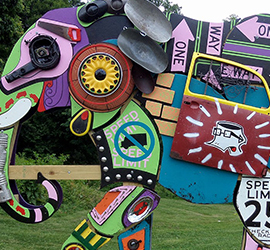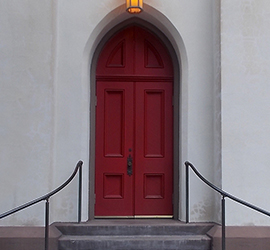Research: My Contribution
Checking my email this morning, I immediately noticed one from my former employer, Johns Hopkins University (JHU). The last research project I worked on was at the JHU Wilmer Eye Institute three years ago. The study… A device trial in Low Vision – “Comparative effectiveness between two types of head-mounted magnification modes using a smartphone-based virtual display.”
Because of COVID, we had to halt our efforts, ultimately resuming work four months later. That was a tough time, attempting to collect data with strict protocols in place. Getting patients to cooperate was a major feat, but I was up to the task. Ultimately, we achieved our goals.
As a Research Assistant, I was the sole data collector. Collecting data under normal circumstances comes with its own set of obstacles because not every patient is compliant. Introduce a pandemic, and the challenges multiply.
Brainstorming innovative and remote ways to complete the study became the major concern. Ultimately, it came down to engagement – calling patients on a regular basis to keep them motivated and involved.
Research Assistants (Coordinators) are the backbone to clinical trials. We make it happen. In addition to collecting data that is clean and accurate, we have to safeguard patient safety by upholding regulatory standards. Quality and integrity are paramount to our success.
I am fortunate to have worked in clinical trials for as long as I have, as a Coordinator, Research Assistant and Project Manager. To have collaborated with scientists, physicians and site managers who have respected my work (and I theirs), has meant a great deal to me.
So, today, when I received an email from my former boss at Wilmer, saying our lead investigator acknowledged my work in his publication, it brought a smile to my face, and to know my former boss thought I would want to know that made the smile bigger. I enjoyed our team. They are a cerebral group, but in those isolated moments, in our meetings, behind closed doors, I got to see another side. (Healthcare professionals, particularly physicians and doctors can often be stoic, maybe sometimes too stoic. So, to see their humanness – those isolated moments of vulnerability, in this case, made all the difference in the world.)
As I write this, I am questioning myself as to why this is so important to me and realize it is because of COVID. Collecting data is one thing. However, this was something much more… Collecting data from emotionally, broken patients who had good intentions to complete this study, but now are dealing with uncertainty, and don’t know if they can see it thorough, and I have to be the one to get them there, knowing that my own emotional compass is slightly off because in addition to being the Research Assistant, I had to play the role of therapist.
Few people know that before getting to the research portion of the patient visit, often I had to spend time listening to patients talk about their losses. COVID impacted many lives. I had eight patients lose loved ones to COVID. One of those patients lost three people. Other patients, who might not have lost anyone, were dealing with a neighbor or friends’ emotions, who were looking for anyone who cared to listen about their grief, and also concerned about their own mortality.
It really was a challenge. However, I am a strong person, and I am glad I stayed the course. I met many kindred spirits during those two years, and their stories have stayed with me, slightly changing the trajectory of my life, thus my current work situation.
































































































































































































































































